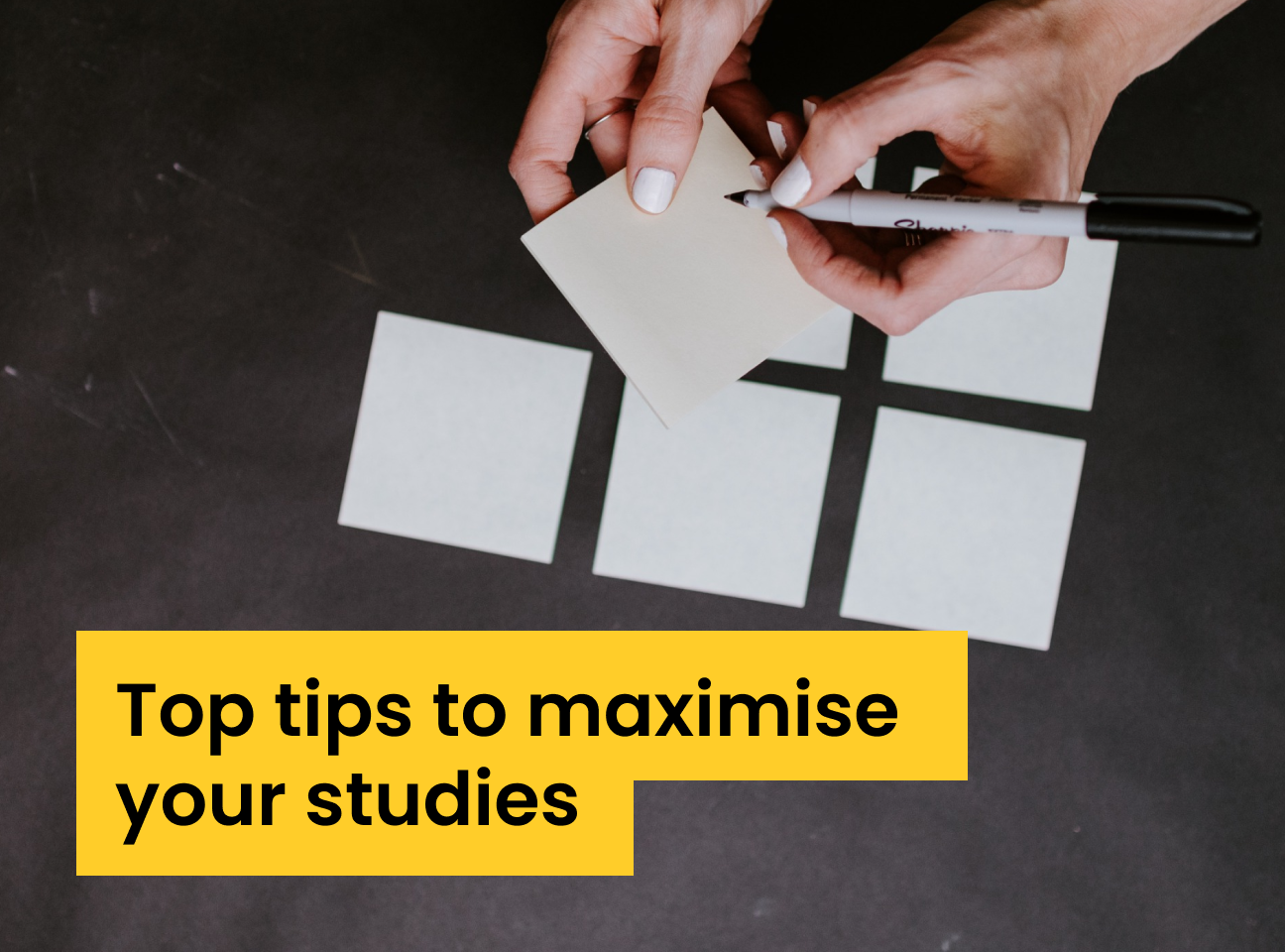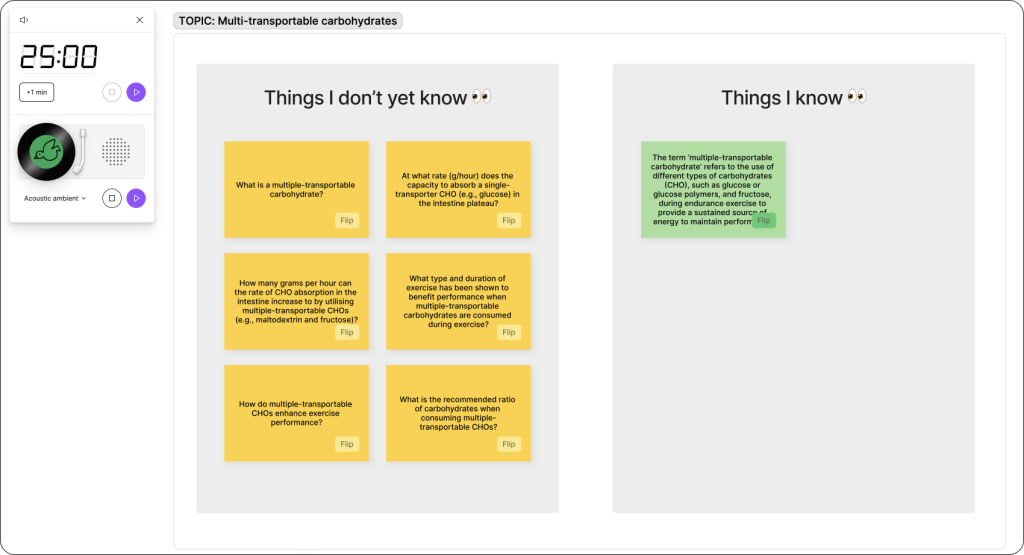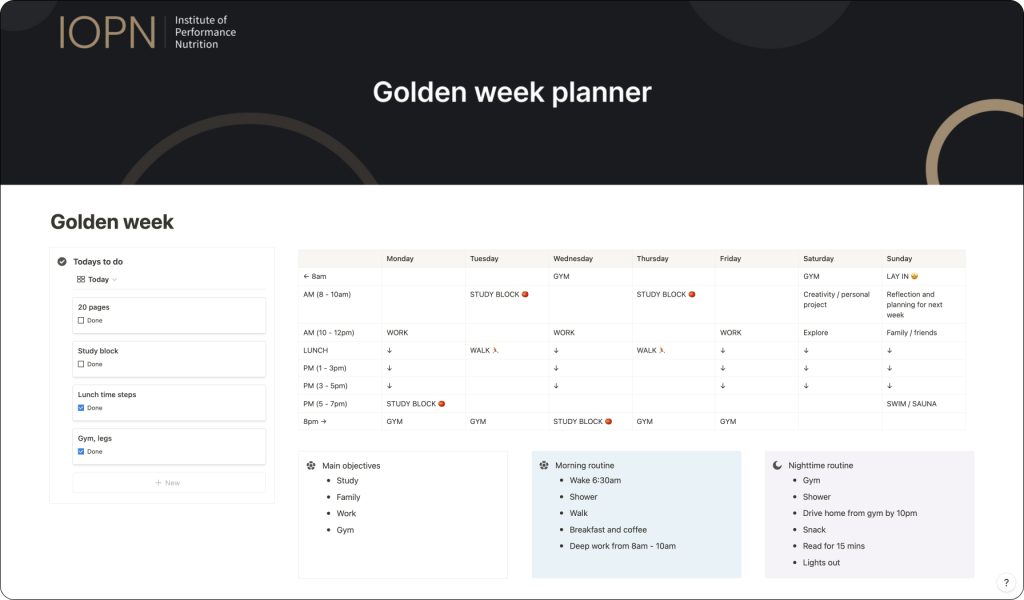
Top tips to maximise your studies
It’s important to keep in mind that everyone learns and studies differently. So we asked our IOPN Team of Tutors what techniques and strategies they’ve experimented with, or recommended to their students to help them maximise their studies!
Develop understanding through teaching others
From our Head of Education, Alex Ritson:
“To genuinely understand something, you must be able to explain it clearly to someone else. Therefore, use your studying as material to teach others — be it via social media or in person. Through explaining and receiving feedback, you’ll hone your understanding and identify gaps to explore further. Initially, this method will feel awkward, but through iteration, you’ll grow in confidence and, most importantly, develop a richer understanding of the topic.”
Put it into practice with the rule of 3. Using the video function on your phone, give yourself three opportunities to practice filming yourself explaining a topic. The aim is to make the next attempt more concise than the last. The repetition will help to build on your confidence and understanding.
Get a study-buddy or join a study group
Having a study buddy or joining a study group can offer numerous benefits to your learning experience:
- Accountability
- Increased motivation
- Exchange of ideas and different perspectives
- Peer teaching and learning (see point 1)
- Time management
TIP – Find yourself a study-buddy by joining the IOPN Community!
Get creative!
Our Lead Tutor at the IOPN and Red Bull Nutritionist, Stephen Smith, suggests getting creative!
“Be creative with your note taking – highlight, redraw, or even print out a ‘scary’ diagram and laminate it”
By being creative with your note-taking, you not only make the process more enjoyable, but you also unlock a range of cognitive benefits that can enhance your learning and retention of information that is individual to you. So, embrace your creativity and explore different techniques to take your note-taking to a new level.
Here are some suggestions on how to get creative with your note-taking:
- Colour coding – assign specific colours to different categories or themes in your notes by using sticky notes, coloured pens and highlighters
- Mind maps – start with a central idea or topic and branch out with subtopics and related concepts
- Sketch-notes – simple drawings, icons, and text to capture information
- Flowcharts – use arrows and boxes to show the flow and decision paths of a process with sequential steps or decision points
- Create flash cards – this can be created digitally (see next image) or on paper!
Take regular breaks
Taking regular breaks while studying is crucial for maintaining focus, reducing mental fatigue, and improving overall productivity.
Working non-stop over long periods can affect your ability to concentrate and absorb information and can dampen your enjoyment. Be sure to schedule in regular breaks and find a routine that works best for you that optimises your studying experience.
We recommend using ‘The Pomodoro Technique’ – a technique that uses a timer to break work or study sessions into intervals, typically 25 minutes in length, separated by short breaks.
Here’s how it works:
- Set a Timer: Choose a task or topic you want to focus on and set a timer for 25 minutes. This time interval is called a “Pomodoro.” You can use a physical timer, a timer app, or even your phone’s timer.
- Focus on the Task: During the 25-minute Pomodoro, concentrate on your task without any distractions. Think of it like going to the cinema – no distractions!
- Take a Short Break: Once the timer goes off, take a short break of around 5 minutes. Use this time to stretch, grab a snack, or do something enjoyable to relax your mind.
- Repeat the Cycle: After the break, reset the timer for another 25-minutes and resume your work on the task. Repeat this cycle of focused work and short breaks.
- Long Breaks: After completing a set number of Pomodoro’s (usually three to five), take a longer break of around 15-30 minutes. This extended break allows you to rest and recharge before starting the next set of Pomodoro’s.

Plan ahead and manage your time effectively
Planning ahead and managing your time effectively are essential for successful studying, however, this requires discipline and consistency.
By planning ahead, setting clear goals, prioritising tasks and implementing strategies to manage your time effectively, you can make the most of your study time and achieve your academic objectives. It can also help to minimise distractions and avoid procrastination as well as allow you to schedule in regular breaks (see point 4).
We recommend using a Study Planner! Using a Study Planner will help you plan your study sessions in advance by using a schedule or timetable. Allocate dedicated time slots for each subject or task, considering your priorities and the amount of work required. A schedule can help you stay organised and ensure you allocate sufficient time to complete the work you need to do.
There are various ways you can do this. For example, you could simply add study blocks directly into your Calendar, as explained in this article by Google here. Alternatively, we’ll be releasing our very own time-management template (built in Notion) in the Tools and Resources section of the IOPN Community very soon. This will help you map out your ‘golden week’.

